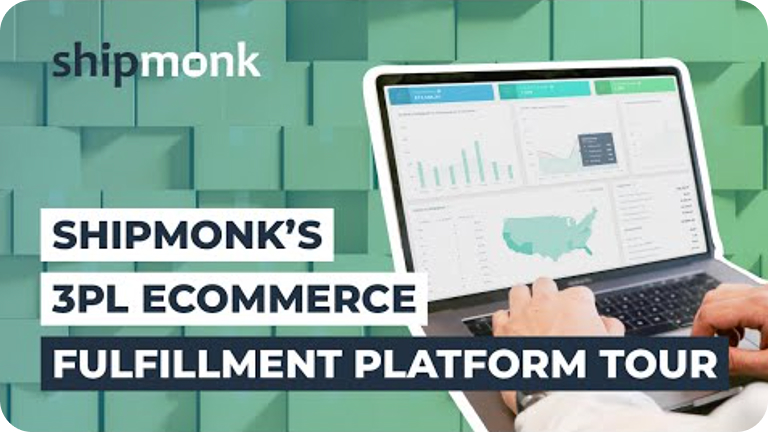It’s easy enough to put yourself in your customers’ shoes. You know what sort of UX entices you to click the “purchase” button when you’re the one doing online shopping. You put your creativity to work at every level of the sales funnel.
But, as a business owner, you need your storefront to do much more than just lead customers on a fun and memorable shopping journey — although that’s certainly important. What else are you looking for in a storefront? Do you want one you can tinker with all day, or one that gets itself up and running right out of the box?
Whatever your priorities, your storefront must do a few key things. It needs to give you the automation tools and ease of use necessary for saving time in your already-crammed schedule. It should also offer the flexibility to scale and adapt in an ever-changing market. If it isn’t customizable, it’s going to be tough to get your money’s worth.
And, speaking of money, your eCommerce storefront needs to provide serious value without costing you a fortune in the process. There are dozens of high-quality options to choose from, but here’s a breakdown of four of the best contenders:
Shopify
Shopify has attained such wide recognition that it’s basically a household name. So how did they get there? Shopify made its name by helping small businesses breeze through setup. They offer a wealth of responsive themes with no-brainer navigation and major aesthetic appeal. Shopify’s app store does the heavy lifting when it comes to setting up customer loyalty programs, optimizing images for SEO, and more. Like the others on this list, they also offer a number of different price packages so you’ll only pay for what you need. Shopify’s checkout isn’t quite as customizable as other storefronts, though, so you could end up settling on a checkout process that’s different from your exact vision.
Pros:
- Turnkey, ready to use
- Great for small shops and solo business owners
- Expert developers help you setup your online shop
- Admin panel is sleek and easy to use
- Easy to manage, even for for non-techy entrepreneurs
- Many beautiful and responsive themes
- Hundreds of add-on apps to enhance your store’s functionality
- Accept credit cards anywhere with a mobile point-of-sale system
- Mobile app lets you manage your store from your smartphone
- Create invoices for wholesale, phone, or custom orders
- Easy to integrate with shipping carriers, fulfillment centers, and drop-shipping companies
- Ability to use their payment processor for a flat 2.9% + 30 cents per transaction (lower rates for upgraded plans)
Cons:
- Checkout process is not fully customizable
- Must purchase a higher plan to sell unlimited products
- The best themes will cost you extra
- Must upgrade to a higher plan to utilize the abandoned cart recovery process, which automatically emails customers who don’t checkout
Summary: If you’re not a developer, Shopify’s built-in app store comes to the rescue.
BigCommerce
BigCommerce builds off Magento’s mega proportions, but it also manages to leave the hefty price tag behind. They boast a 99.9% uptime average and reliably fast page loads, which means you don’t have to worry about your website going offline. BigCommerce also offers a team of design experts to help make your shop look slick, as well as a host of beautiful themes on par with Shopify. One of the biggest clinchers, though, might be that they can migrate all the data from your existing storefront into a new one in only 5–10 days without any downtime. But if you’re someone who wants to manage your shop on the go via a handy mobile app, BigCommerce might not be up to scrap.
Pros:
- Popular for small and medium-sized businesses
- More features than Shopify for a comparable price
- Expert-assisted store setup
- Base plan features include gift cards, ratings and reviews, and real-time shipping quotes
- Comes with a built-in blog
- Take advantage of lower PayPal rates
- Sell unlimited products and enjoy unlimited bandwidth
- Large selection of responsive themes
- Admin panel is easy to use and navigate
- Can be integrated with eBay, Google Shopping, Alibaba, and more
Cons:
- No mobile app to manage your store on the go
- Annual number of sales dictates the level of plan your shop is eligible for, so a large increase in sales may require you to upgrade
- The best themes will cost you extra
- Must upgrade to a higher plan to utilize the abandoned cart recovery process, which automatically emails customers who don’t checkout
- 24/7 live support requires you to search the help page to attempt to resolve your issue before offering contact information
Summary: Moving from an old storefront? Keep it simple with BigCommerce’s automated migration.
Magento
Magento frames itself as the storefront that translates seamlessly from desktop to mobile to brick-and-mortar sales. And in a retail environment where omnichannel marketing doesn’t seem to be going anywhere soon, they’re smart to do so. Serving over 250,000 merchants, Magento also offers a rich resource library for new business owners trying to tackle a steep learning curve. Their pricing might seem a bit steep if cost is your main deciding factor, especially when it comes to enterprise-level packages.
Pros:
- Highly scalable, great for fast-growing businesses
- Updated backend is designed for non-techy users
- Easy to create products using Magento’s upload feature
- Bulk edit products to save time
- Ability to set different prices for individual items, such as bulk-pricing tiers
- Catalog management supports comparisons, upsells, cross-sells, related products, and wish lists
- Product alerts can automatically notify your customers their desired product is back in stock
- Ability to create a website in multiple languages to serve a global audience
- Magento Marketplace hosts a robust and versatile selection of customized extensions
- Huge resource library
- Certified experts help you implement your vision to create a stunning customer experience
- Integrates with many popular payment gateways including PayPal, CyberSource, WorldPay, Authorize.Net, and Braintree
Cons:
- Not the best solution for small businesses on a budget
- The flexible customization options are difficult for a non-techy business owner to adjust, so you may need a Magento developer on your team
- Experienced Magento developers can be costly and difficult to find
Summary: Magento scales up bigtime for expert handling at a large magnitude.
WooCommerce
If popular opinion is any indicator, WooCommerce is a force to be reckoned with. They currently run a little over 39% of all online shops, so they must be doing something right. One way WooCommerce really stands out is that it takes customizability to the max. Being an open-source platform means the limits of your storefront are only that of your (or your developer’s) imagination. They also provide an awesome worldwide support team. All that being said,WooCommerce is a WordPress plugin at the end of the day. So if you’re not a fan of WordPress and need something plug-and-play, you may consider looking elsewhere.
Pros:
- Free to use, best for startups on a tight budget
- Popular with retailers who love WordPress
- Great for blogging and content marketing
- Simple installation
- With expansive customization options, WooCommerce is more flexible than Shopify
- More plugins than Shopify (and vast support thanks to the huge WordPress community)
Cons:
- Cannot be used without WordPress
- Hosting solutions are not offered by WooCommerce
- No expert support to setup your shop
- Best managed by someone savvy in HTML
- Updates are required to ensure the platform is working at its best, which can cause issues with plugins
- Premium themes are not free
- Themes may require customization by a programmer to achieve your intended vision, which can be costly
Summary: The WooCommerce super-popular WordPress storefront is flexible till the cows come home.
Growing Your Business
Which of these top online storefronts is best suited to your business? Once you answer that question, you might want to start thinking about outsourcing your fulfillment as well. After all, your new boost in sales will mean tons of new orders — why not let someone else process them while you continue to keep your efforts focused on your professional zone of genius to make your business thrive? Learn how ShipMonk transforms eCommerce fulfillment stress into total business zen.





